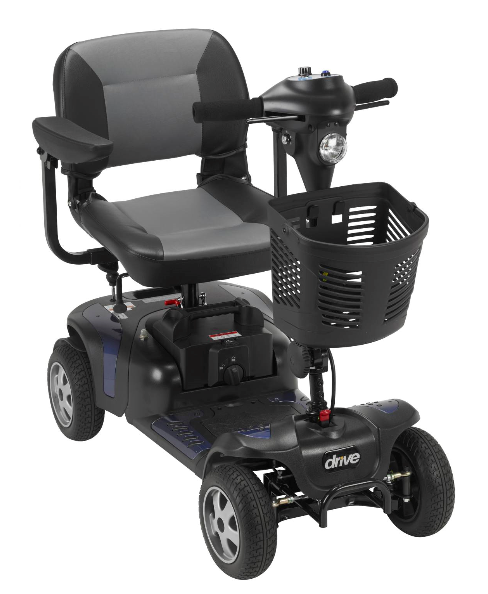The Importance of Adaptive Equipment as We Age

According to statistics compiled by the Centers for Disease Control and Prevention, 3 million seniors are treated in emergency rooms due to fall-related injuries every year. Approximately one-fifth to one-third of those older adults who fall suffer lacerations, hip and head injuries. These injuries not only make living independently more difficult, but they could even have long-term effects on a senior’s well-being.
These statistics may seem frightening, but there are many ways to prevent fall-related hazards. For example, making minor accommodations around the home can significantly reduce the risk of falling. Accommodations may include: adding lighting near raised walkways, placing non-slip mats on uneven or tiled flooring, tidying up living spaces, and creating an unobstructed path on stairways. Using adaptive equipment is another option that can not only reduce fall risk, but can help with aging in place.
Types of Adaptive Equipment
Adaptive equipment can fall under several categories. The first category, mobility equipment, is one of the most widely used forms of technology. According to the U.S. Department of Health and Human Services, nearly 14 percent of adults 65 and older use a mobility device and 40 percent of adults over the age of 80 use a wheelchair, cane or walker. Mobility devices impact an individual’s ability to participate in everyday activities. To assess what type of device you or a loved one may need, consult with your healthcare team and insurance provider.
The second category of adaptive technology, daily living aids, covers a spectrum of products from bath railings to reaching devices. This form of equipment assists individuals with activities of daily living, (ADLs). According to the Harvard School of Medicine, nearly two-thirds of Americans over the age of 65 need help with certain everyday activities such as eating, bathing and getting in and out of a bed or chair. Daily living aids accommodate many of these needs.
Finally, adaptive equipment also includes: respiratory aids, visual and hearing aids, feeding aids, and speech communication aids. Many of these retail items, including mobility and daily living aids, are private pay and do not require documentation or insurance approval. However, several forms of adaptive equipment may be subsidized under Medicare or through private insurance (additional criteria must be submitted for such equipment). For a comprehensive evaluation, be sure to assess your needs with a healthcare professional first.
To learn more about the ways adaptive equipment can benefit you or a loved one, visit Concordia Medical Equipment at www.ConcordiaMedicalEquipment.com. You can also call 724-352-1100 to speak to customer service. To find additional information about our senior care services in western PA, eastern OH, or Tampa, FL, call our administrative headquarters at 724-352-1571 or message us through our online contact form to ask about what Concordia can do for you.
Get Updates From Concordia
There is always a LOT happening at Concordia! Would you like to stay up-to-date with our news and events? Sign up for our monthly e-newsletter here.